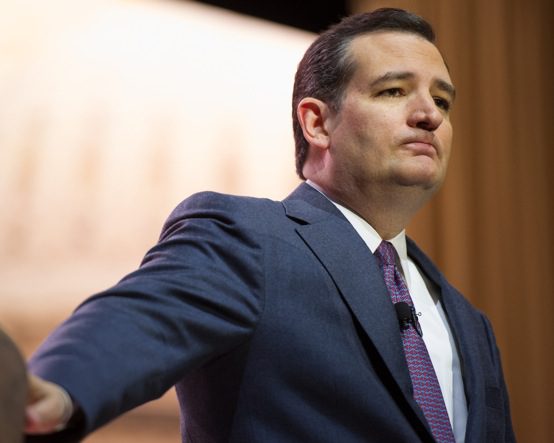Saudi Arabia’s Dwindling Influence

Ted Cruz has consistently been one of the most pro-Saudi Republicans in the Senate, so it is interesting that he is now criticizing them publicly over their misguided oil price war:
Russia and Saudi Arabia took advantage of the coronavirus crisis “by flooding the market and driving the price of oil way, way down,” Sen. Ted Cruz says. “That was opportunistic.” https://t.co/g3ropmgRod pic.twitter.com/i30GuZKWWT
— CNBC (@CNBC) March 30, 2020
Cruz says that “the Saudi kingdom is supposed to be our friend,” and he goes on to say that they are “not behaving like a friend when you are trying to destroy thousands and thousands of businesses all across Texas and the country.” It’s true that Saudi behavior has not been that of an ally, but then that’s because Saudi Arabia isn’t an ally and never has been one. Our government should stop treating them as if they were an ally, and we should not expect them to start acting like one anytime soon. There are no “friends” in international relationships, but even as a partner the Saudis have proven to be unreliable and a growing liability for the U.S. The U.S. owes them nothing, and as we can see from their latest antics they cannot be counted on to act responsibly.
The Saudi government has spent a considerable sum on lobbyists to influence members of Congress, and that lobbying effort has intensified in response to growing criticism of U.S. support for the war on Yemen. As Ben Freeman reported in an article for TAC at the end of 2018, Cruz was one of the top recipients:
While the measure passed, opposition from the Saudi lobby was fierce and strongly reflected in the vote. In fact, of the 37 senators who voted against the measure, 30 have received campaign contributions from lobbying firms working for the Saudis. In total, an analysis of Foreign Agents Registration Act (FARA) records reveals at least $226,182 in campaign contributions reported by firms registered to represent Saudi Arabia that went to these 30 senators over the past two years.
The top recipient of Saudi lobbying firm contributions among senators who voted against the measure was Dean Heller, Republican of Nevada, who received $27,150. Heller’s vote against the resolution on Wednesday was notable given that he had previously voted against an arms sale to Saudi Arabia and was a co-sponsor of legislation that would have prohibited the U.S. military from refueling Saudi warplanes.
Heller’s haul from Saudi lobbyists was closely followed by Roger Wicker, Ted Cruz, and Roy Blunt, Republicans all, who have received $25,550, $23,000, and $19,250, respectively, from Saudi lobbyists over the past two years. On the campaign trail, Cruz called the possibility of the Saudi government ordering the murder of Jamal Khashoggi “troubling” and said “there should be real consequences for that.” His vote Wednesday was to block one of those consequences.
Cruz has voted against every resolution to end U.S. involvement in the war on Yemen or otherwise hold Saudi Arabia accountable for its crimes, so it is a measure of how much Saudi influence has deteriorated that even Cruz is coming out against them now. The Saudi government under Mohammed bin Salman and his father has managed to burn its bridges with most members of Congress and many of its other erstwhile supporters in Washington. Through their oil price war, they have found a way to alienate some of the most hard-line Iran hawks that were willing to enable all of their other destructive policies. It is unfortunate that it has taken until now for many of the kingdom’s remaining cheerleaders on Capitol Hill to figure out that Saudi and American interests increasingly diverge, but I suppose it’s better late than never.
Comments